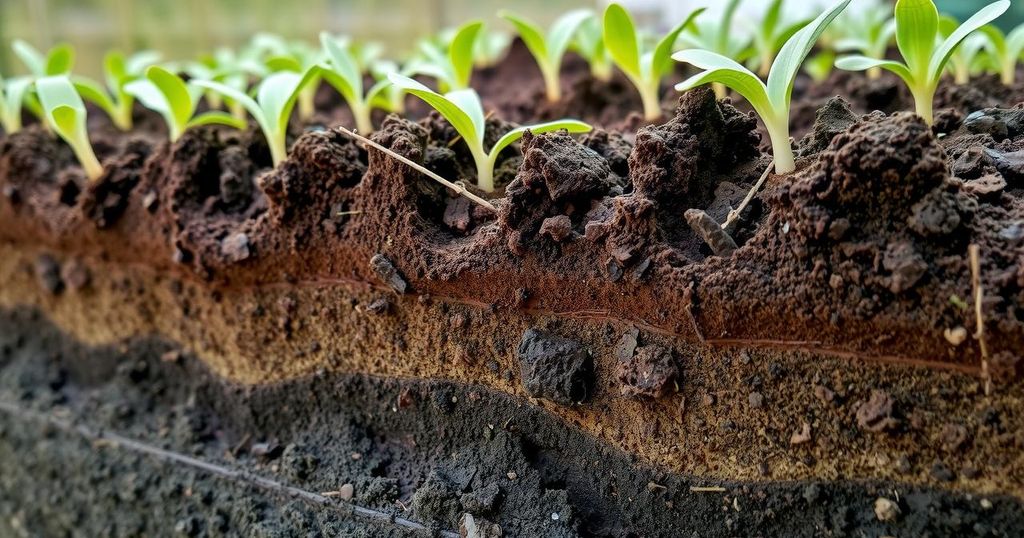A recent study reveals that soil contributes about fifteen percent of global greenhouse gas emissions, primarily due to agricultural practices. The research indicates that CO2 is the most dominant greenhouse gas emitted from the soil. It emphasizes the need for urgent strategies to reduce soil emissions while meeting increasing food production demands.
Recent research has revealed that, while soil serves as a crucial carbon sink, it simultaneously contributes approximately fifteen percent to global greenhouse gas (GHG) emissions, thereby exacerbating climate change. Human agricultural practices, driven by the escalating demand for food, have led to notable emissions of carbon dioxide (CO2), nitrous oxide (N2O), and methane (CH4) from the soil. The study highlights the intricate challenge of enhancing food production from soil while simultaneously mitigating its emissions, presenting a pressing issue within the context of global warming targets.
Conducted by researchers from the University of Queensland, University of Aberdeen, and Nanjing Agricultural University, the study assessed existing data on key GHGs and was published in the journal Soil on December 6, 2024. It was found that CO2 comprised a staggering seventy-four percent of soil-derived warming, followed by N2O at seventeen percent and CH4 at nine percent. These emissions threaten the aspirations set forth in international climate agreements, particularly the goal of maintaining global warming within 1.5 to 2°C above pre-industrial levels.
The urgency of this issue is underscored by the United Nations Food and Agriculture Organization’s estimate that an additional 165 to 600 million hectares of land will be necessary for food production by the year 2050. The research indicates that CO2 emissions from soil are significantly influenced by historical land use changes, notably in regions like Brazil and Argentina. This situation is aggravated by the loss of soil organic compounds, which alone has contributed eleven percent to the overall rise in global warming.
The authors of the study emphasize the need to balance soil’s critical role as a GHG sink with the acknowledgment of how anthropogenic activities have escalated GHG emissions from soil. They advocate for urgent measures to prevent further land use changes, particularly those related to biofuel production, and to implement strategies that enhance nitrogen fertilizer efficiency to curb nitrous oxide emissions. Additionally, efforts must be directed towards mitigating methane emissions from rice cultivation and managing the thawing of permafrost.
Soil is essential for food production, forming the basis of agricultural systems worldwide. However, this critical resource not only stores carbon but can also be a significant source of greenhouse gas emissions. Recent studies have revealed a complex interaction between soil management practices and climate change, highlighting the dual role of soil as both a contributor to and a mitigator of greenhouse gas emissions. Understanding these dynamics is vital for developing sustainable agricultural practices and for meeting international climate goals, particularly in the context of a growing global population.
In conclusion, this groundbreaking research highlights the dual nature of soil as both a sink and a source of greenhouse gases, posing significant challenges for climate change mitigation. It underscores the immediate need for comprehensive strategies aimed at reducing emissions from soil while enhancing its capacity to sequester carbon. With food demand projected to rise substantially, balancing agricultural practices with environmental sustainability is imperative for achieving global climate targets and ensuring food security.
Original Source: www.downtoearth.org.in






